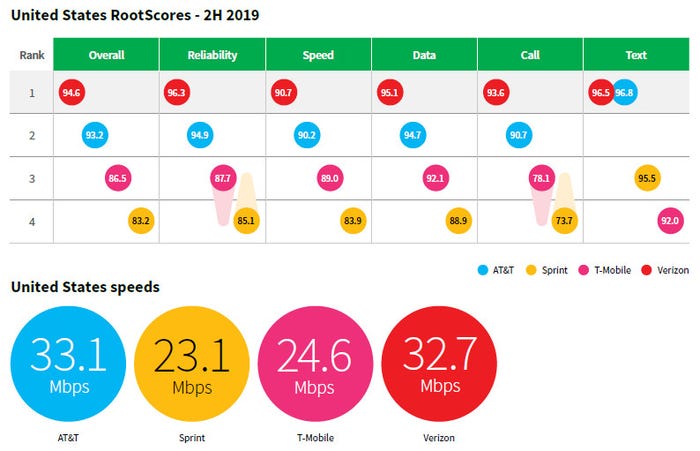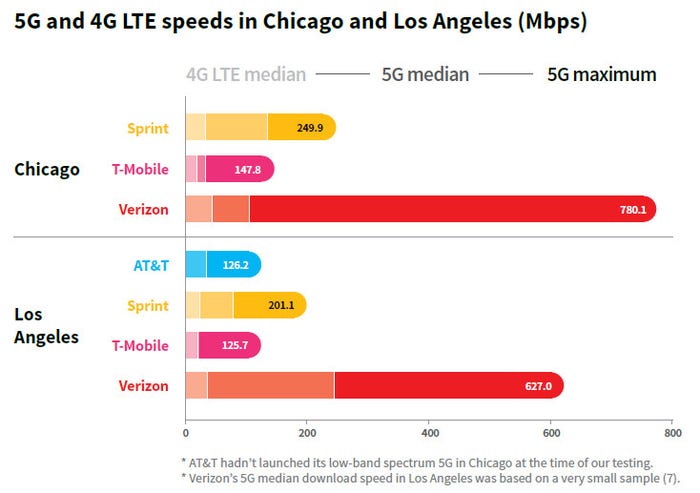RootMetrics US numbers indicate TMUS/Sprint merger is a good ideaRootMetrics US numbers indicate TMUS/Sprint merger is a good idea
The performance metrics of the four US MNOs confirm a significant gap between the big two and the other two.
January 28, 2020

The performance metrics of the four US MNOs confirm a significant gap between the big two and the other two.
RootMetrics did a deep dive into the networks of Verizon, AT&T, T-Mobile and Sprint over the second half of last year. In the customary way it then published top-line performance numbers and ranked the networks according to a few sub-criteria. As you can see in the first table below, Verizon comes top in nearly all categories, with AT&T close behind and the other two lagging considerably. We’re not sure why AT&T isn’t number one in any of the speed categories but it’s presumably explained somewhere in the methodology.

The report also takes a specific look at 5G and finds some pretty major variations in performance. Verizon got so excited about the finding that ‘Verizon’s 4G LTE speeds were faster than the low-band 5G median download speeds of T-Mobile in Chicago and Los Angeles and identical to AT&T’s low-band 5G median download speed in LA,’ that it published a special press release. This doesn’t come as a massive surprise since TMUS is devoting so little spectrum to its 5G right now.

The more significant issue raised by this report is how far behind TMUS and Sprint remain on most key metrics. This would seem to support the case for their merger, since the resulting economies of scale, buying power, etc, would allow greater investment in the network. Whether or not that would actually come to pass, or whether shareholders would trouser the cash instead, is hard to predict. But it seems counter-productive to insist they continue to struggle as second-tier MNOs.
About the Author
You May Also Like










.png?width=300&auto=webp&quality=80&disable=upscale)


_1.jpg?width=300&auto=webp&quality=80&disable=upscale)